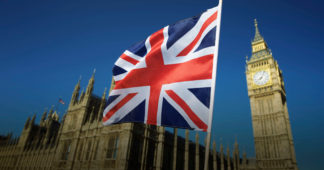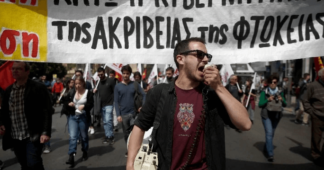According to the organizer FGTB, at least 80 000 people demonstrated Monday in Brussels against the cost-of-living crisis.
Jun 20, 2022
Brussels, the capital of Belgium, was today the scene of a demonstration where according to the organizer FGTB (General Labor Federation of Belgium) 80, 000 people participated, demanding the government’s response to the current sharply rising living costs.
Monday’s march led by three labor unions – the FGTB, the Confederation of Christian Trade Unions (CSC), and the General Confederation of Liberal Trade Unions (CGSLB) was a demonstration against the 1996 Wage Norm Act, which freezes wage negotiations.
Intended to guarantee better wages in the face of the cost-of-living crisis, the demonstrators demanded the government introduce an amendment regarding the matter. The rise in travel costs was denounced during the march, affecting 20 percent of the workforce.
On Sunday, the Belgian Prime Minister Alexander De Croo addressed this topic when speaking to Flemish broadcaster VTM Nieuws who he adverted the labor action that could represent a threat to stability. The Prime Minister said that the Belgian government has already taken several steps to protect workers against the rising cost of living.
In a common front, 🇧🇪#Belgium's Trade Unions are organising a large demonstration in #Brussels on 20 June to defend purchasing power, which has been affected in many sectors, & to call for political awareness, particularly with regard to the fight against the wage freeze law. pic.twitter.com/DrdWzBhhM8
— SOLiD (@SOLiDialogue) June 20, 2022
De Croo said that the Begian Administration is considering expanding support measures until the end of the year, including cutbacks on the energy sector’s value-added tax (VAT) rate, covering gas and electricity. The reduction of excise duties at the pump will be included.
Reports dropped that the one-day strikes caused severe problems at the Brussels Airport and local transport networks across the nation, which almost disabled public travel. Brussels Airport suspended all departures, and arrivals were also affected because the industrial action extended to security personnel.
The inflation in Belgium grew by 6 percent in June, resulting in a sharp rise in the cost of living with other countries hit by the effects of the Russia-Ukraine armed conflict.
We remind our readers that publication of articles on our site does not mean that we agree with what is written. Our policy is to publish anything which we consider of interest, so as to assist our readers in forming their opinions. Sometimes we even publish articles with which we totally disagree, since we believe it is important for our readers to be informed on as wide a spectrum of views as possible.











